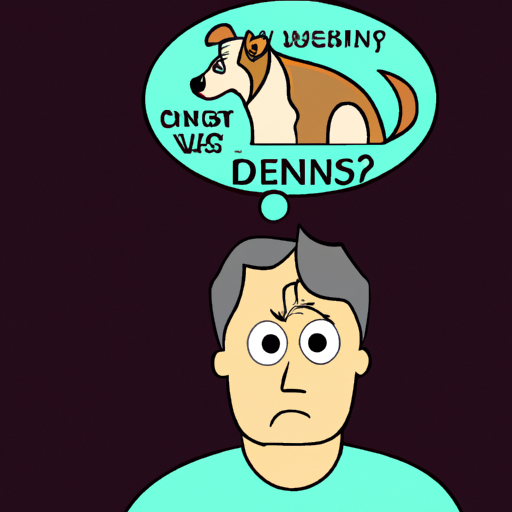As a caregiver, you want to provide the best possible care for your furry friend. But what happens when your dog starts exhibiting strange behaviors, such as head tremors? Understanding the root cause of these tremors can help you seek appropriate treatment and ensure your dog remains healthy and happy.
1. Understanding Head Tremors
Head tremors in dogs are involuntary, rhythmic movements of the head. They could be up and down (nodding) or side to side. It’s important to remember that a head tremor is not a seizure. Seizures involve a loss of consciousness and muscle contractions, which are not present in a head tremor.
2. Common Causes of Head Tremors
Head tremors in dogs can have various causes, including:
-
Idiopathic Head Tremors: These are tremors with no known cause. They are often observed in certain breeds, like Bulldogs, Dobermans, and Boxers, suggesting a potential genetic predisposition.
-
Neurological Disorders: Conditions such as Distemper or brain diseases can cause head tremors.
-
Toxins or Poison: Exposure to certain substances, like chocolate, xylitol, or lead, can cause tremors.
-
Metabolic Disorders: Conditions like low blood calcium can result in tremors.
3. Diagnosis and Treatment
Diagnosing head tremors involves a complete physical examination, history taking, and possibly further diagnostic tests like blood tests or MRI. Treatment is based on the underlying cause. For idiopathic tremors, there’s no specific treatment. However, calming the dog down during an episode can help reduce the tremor’s severity.
| Cause | Treatment |
|---|---|
| Idiopathic | Calm Environment |
| Neurological Disorders | Medications |
| Toxins | Removal of toxin, supportive care |
| Metabolic Disorders | Correcting the imbalance |
4. When to Seek Veterinary Help
If your dog experiences a head tremor for the first time, it’s crucial to consult with a veterinarian. They can rule out any serious underlying conditions. Regular tremors, especially those accompanied by other symptoms like lack of coordination, weakness, or changes in behavior, should also prompt a vet visit.
5. Prevention and Care
While you may not entirely prevent head tremors, especially if they’re idiopathic, certain steps can help manage them:
- Regular Check-ups: Regular vet visits can catch any potential health issues early.
- Healthy Diet: A balanced diet ensures your dog has all the necessary nutrients.
- Avoid Toxins: Keep harmful substances out of your dog’s reach.
Frequently Asked Questions
Q: Are head tremors in dogs life-threatening?
No, head tremors in dogs are not typically life-threatening. However, they can be a sign of a more serious underlying condition, so it’s always best to consult a vet.
Q: Can head tremors be cured?
Treatment and prognosis depend on the cause of the tremors. While idiopathic tremors can’t be “cured,” they can be managed effectively.
Q: How can I calm my dog during a tremor episode?
Speak in a calm, soothing voice and provide a quiet environment. Avoid bright lights and loud noises.
Remember, your role as a caregiver is vital to your dog’s health and happiness. Stay informed, stay vigilant, and always prioritize your dog’s wellbeing.



